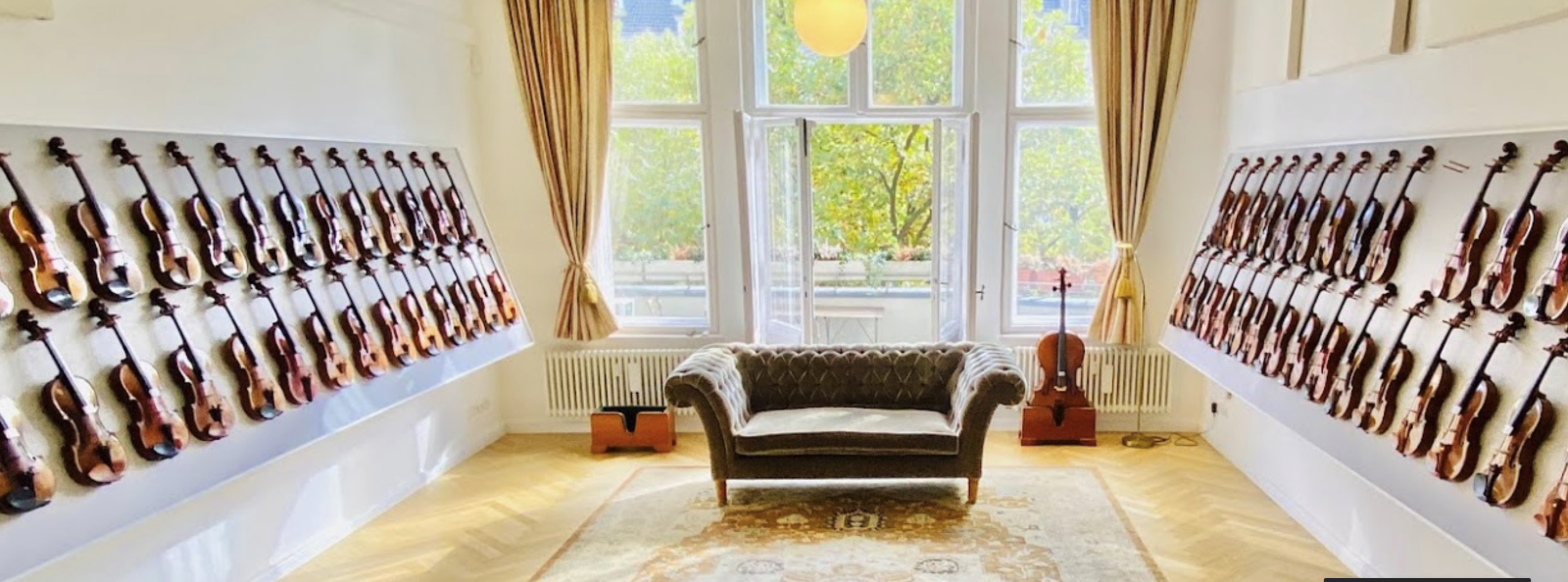WHEN A STRANGE PURSUIT BECOMES A CAREER PATH
The Wall Street Journal, July 19, 2005
By Erin WhiteWhen Jason Price told his parents that he wanted to take a year off from Williams College to make violins in northern Italy, they were “kind of shocked,” he says. A great school such as Williams would plant him firmly on a traditional path to success. Why would he want to derail himself?
But sometimes — especially when you’re young — pursuing an interest that seems to divert from a career path actually can lead to a stimulating and rewarding one.
That’s what Mr. Price, now 29 years old, discovered. He followed his interests along a meandering path, and ended up co-founding a successful stringed-instrument auction business.
While growing up, two of his interests were playing the cello and wood-work; he even built a couple of canoes. When he was around 14 or 15, he started looking for his first serious cello. As he poked around instrument shops, he became enthralled with violin craftsmanship. He even attempted to make his own scroll, the head of a bowed stringed instrument. “It came out absolutely grotesque,” he recalls.
But he brought it on a trip to visit his aunt and uncle in Ithaca, N.Y., where he showed it to their friend who ran a local violin shop. “I guess he saw some scrap of talent behind that,” Mr. Price says. The man offered to let him spend the summer working in his shop. Mr. Price accepted.
His fascination with violins remained through high school and into his first year of college. He wasn’t unhappy at Williams, but like many students, he longed for an adventure. An idea began to germinate: He could fly off to Cremona, Italy, home to a long tradition of violin-making and a school that taught the craft. He researched the school, applied and was accepted. But there was one problem: Tuition was very low, but he needed money to cover his living expenses.
He presented his plan to his parents the summer after he’d completed his first year of college. “I think it really kind of blindsided them,” he says. But it would only be a year, he said, and he’d actually save them some money because he’d use advanced-placement credits to accelerate at Williams upon his return. They consented, and agreed to give him about $12,000.
Mr. Price arrived in Cremona to start his great adventure. The plan quickly fell apart. The school was basically a vocational high school, so students learned violin-making, but also had to take traditional academic subjects such as geography and English. Mr. Price was older than many of the students, and had a different mentality as well. “You’re sitting there with Joe Italian 17-year-old who’s still going home for lunch to his mommy,” he says.
He quit the school and devised a new plan. He’d heard about an elderly violin maker in Parma who took students on as apprentices. Mr. Price, speaking barely a word of Italian, took a train to visit him. “He had a big, white bushy beard,” Mr. Price says. “If he dressed in the right clothes, he’d look like Santa Claus.” Mr. Price landed an apprenticeship.
He stayed in Cremona and commuted about 45 minutes by train to Parma three times a week. For about nine months, he lived in a cheap apartment above a “house of ill repute,” he says. (He later found a place “a little more genteel.”)
He studied under the Parma teacher for about a year, and also worked at home on his own. With such a strong tradition of violin-making, Cremona has wood merchants, places to buy violin-making tools and, “if you’re in doubt about how to do something, you can just about go knock on your neighbor’s door and ask,” he says.
A year passed, and he didn’t want to return to Williams yet. He told his parents, who were concerned that he was derailing himself even more. Relatives sent letters telling him how important college was. But he was able to teach English to pay his bills, and even began to sell some violins. His one-year break turned into three.
By the end of three years, he realized that although he loved the world of violins, he didn’t have the personality to endure an entire career sitting behind a bench making violins himself. “Something with a violin was what I wanted to do, but I also knew it wasn’t being a violin maker,” he said. So he came back to school, newly energized at the prospect of reading, learning and not having to worry about paying his own bills.
He stopped making violins but still kept in touch with that world. His aunt’s friend with the violin shop now had an additional shop in Boston. Mr. Price visited him every so often. One day, the two attended an instrument auction. They began talking about starting an auction business of their own, rounded up a third partner, and each invested $3,000 to start an online stringed-instrument auction business.
In November 1999, as Mr. Price was in his third and final year at college, the company held its first auction. Mr. Price thought it might gross about $300,000. Instead, it brought in around $850,000. Today, the business, called Tarisio Auctions LLC, is located in New York and has four employees in addition to the three founders. Last year, it had just over $5 million in auction sales, Mr. Price says.
The thorough understanding of violins and industry contacts Mr. Price gained in Cremona are a big asset to the business. But more important, his Italian adventure gave him the confidence to take big leaps. “It certainly made me a lot less afraid of taking risks and not afraid of doing something that has the potential to fail,” he says. “I would have been a softer person if I had not had that hard experience when I was 18 or 19.”


